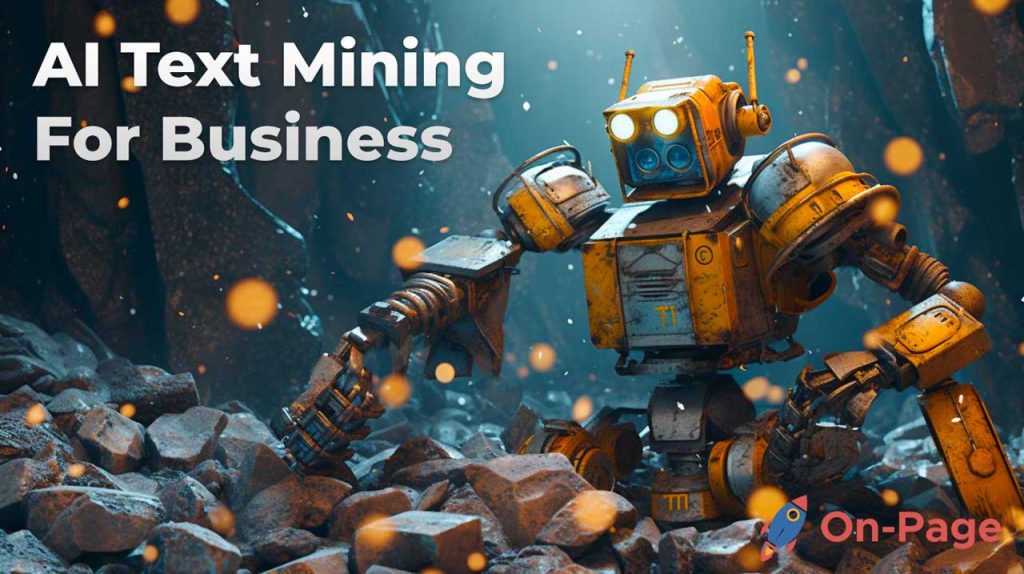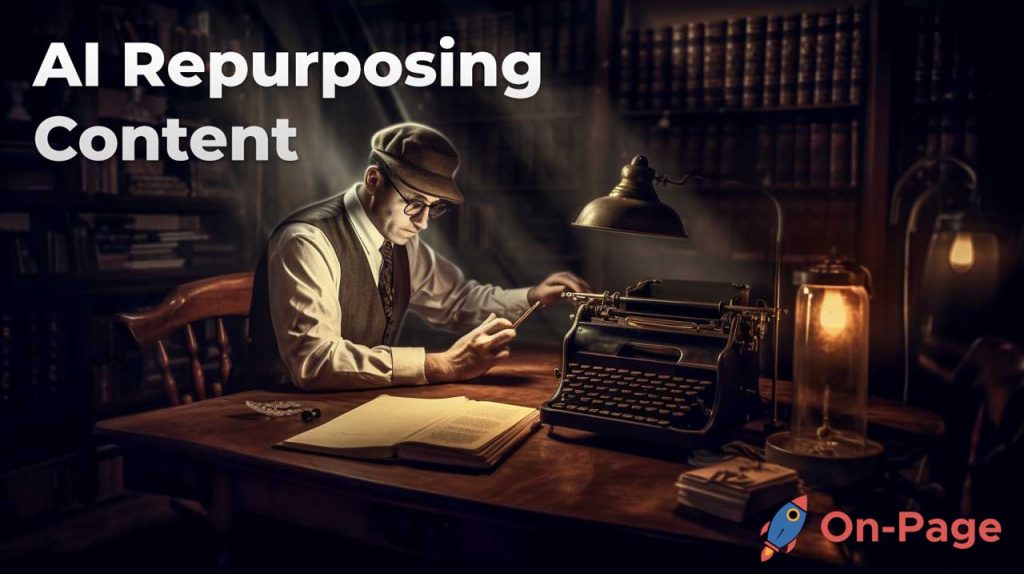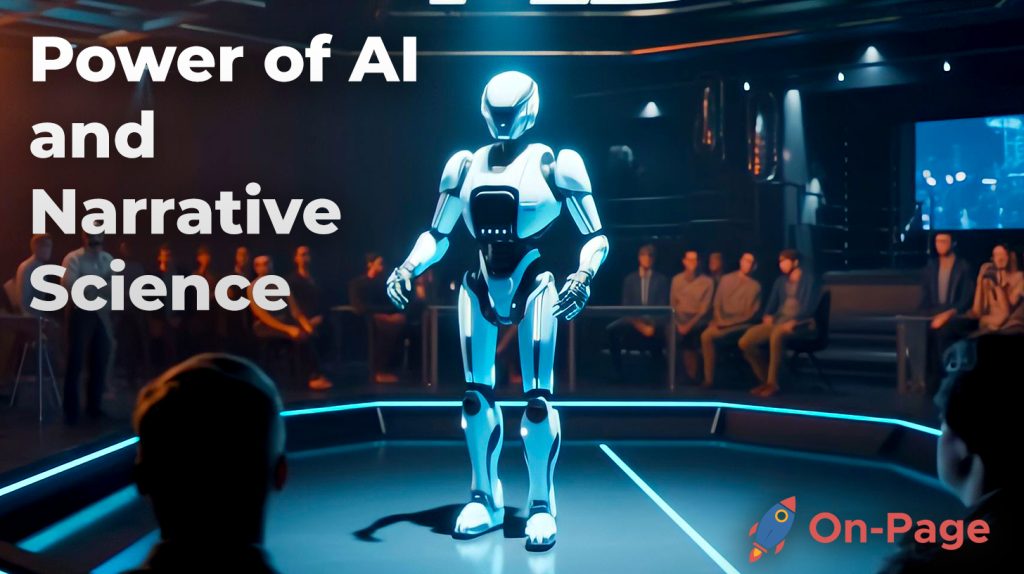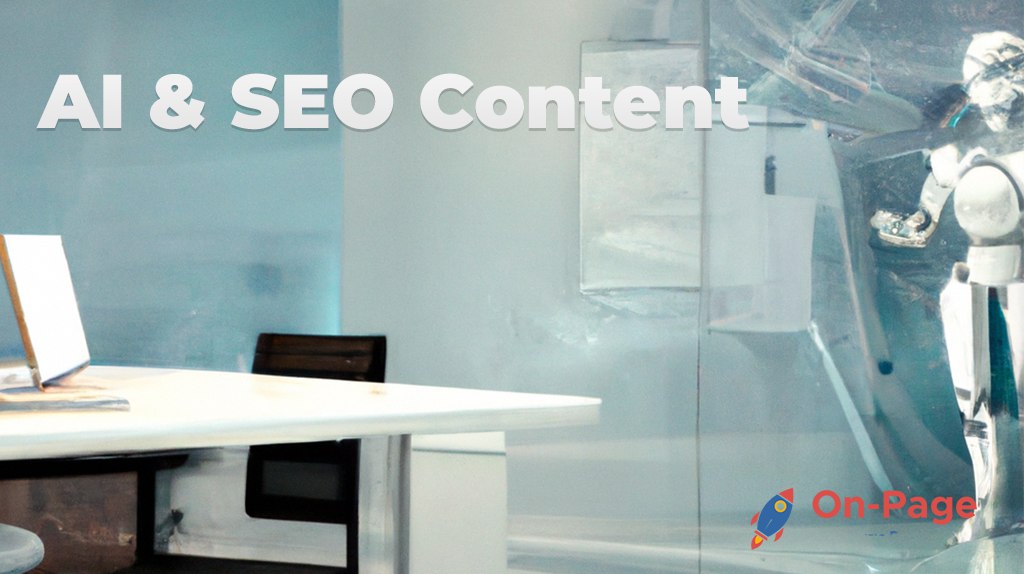Picture this: it’s 2023, and you’ve just discovered the perfect AI-generated content tool to make life easier. No more sleepless nights spent drafting blog posts or fretting over writer’s block. But amidst this newfound content bliss lies a nagging question: is AI-generated content SEO-friendly? Today, we delve into the great unknown and reveal what you need to know about AI content and its compatibility with search engine optimization. Stay tuned for startling insights that will redefine your understanding of AI technology in the world of SEO.
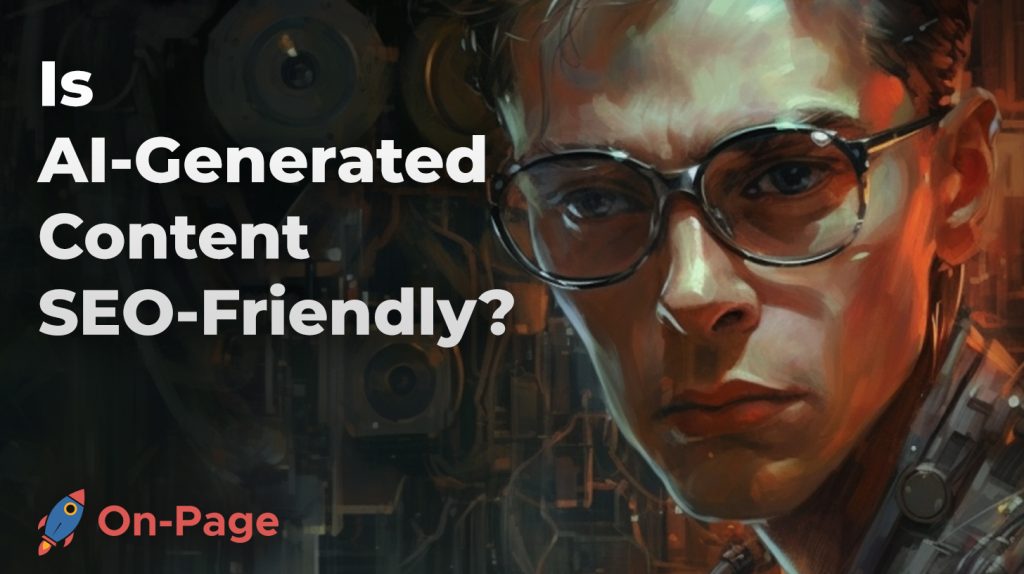
Yes, AI-generated content has the potential to improve your website’s SEO, especially if you’re using top-tier content optimization tools like On-Page.ai. These tools can help identify and target relevant keywords for a specific topic, making it easier for search engines to understand what your content is about. However, it is essential to proofread and edit AI-generated content carefully to ensure it is accurate and valuable to your audience. To use AI-generated content successfully for SEO, businesses should use it as a tool in their content creation process, not rely on it from start to finish.
Understanding AI-Generated Content
Artificial intelligence has come a long way in recent years, and its impact on content creation is undeniable. Many businesses are adopting AI-generated content to save time and money while producing high volumes of content. However, some marketers still have questions about the quality and SEO-friendliness of this type of content.
AI-generated content refers to any type of content that is created by machines rather than humans. Whether it’s blog posts, product descriptions, or social media posts, AI can create a wide range of content with the help of natural language processing algorithms. The main advantage of using AI for content creation is that it can produce a large amount of text quickly and at a relatively low cost.

For instance, let’s say you own an e-commerce store that sells clothes. Using AI-generated product descriptions saves you time by automatically generating unique product descriptions for each item in your inventory without requiring additional manpower.
However, one concern with AI-generated content is that it may lack human insight and creativity, leading to bland or low-quality output. Despite these concerns, many businesses have found success in using AI-generated content as a supplement to their regular workflow.
According to data from Hubspot, 47% of customers viewed three to five pieces of content before engaging with a sales representative. If companies can use AI to generate more content faster, they could potentially have more opportunities to reach their target audience and increase their conversion rates.
That being said, there are limitations to what machines can do when it comes to generating high-quality written output. That’s why the next section will dive deeper into how AI creates content.
How AI Creates Content
Before delving into how AI creates content, it’s essential first to understand the baseline expectation for written output. Human authors use their experience and knowledge to create engaging stories with style, tone, and language proficiency.
Think of a professional basketball player. AI is like the new recruit who has just started playing basketball. While AI can learn the rules and techniques quickly, it may not yet have the experience to create complex strategies or adapt to sudden changes on the court.

One way AI generates content is through natural language processing (NLP) algorithms, which analyze existing written text and use it as a basis for generating new text. AI algorithms are programmed to recognize patterns in language usage, such as sentence structure, word choices, and grammar rules. These patterns enable AI systems to mimic human writers’ writing styles for different niches or industries.
For example, an e-commerce store selling house decoration items might require product descriptions that utilize descriptive adjectives such as stylish, elegant or vibrant colors to describe its products. A machine learning algorithm could study these prior descriptions of what “stylish” means in the context of home decoration items and generate new product descriptions for new items.
Additionally, some AI writing tools use templates that allow marketers to input specific information or instructions about their brand, niche, target audience before generating output. Templates help with structuring content while giving personality to the text.
For instance, Stealth AI Writer can quickly churn out engaging and on-brand SEO-friendly content for your business. Simply input your target keywords, URL, and a short description of your website.
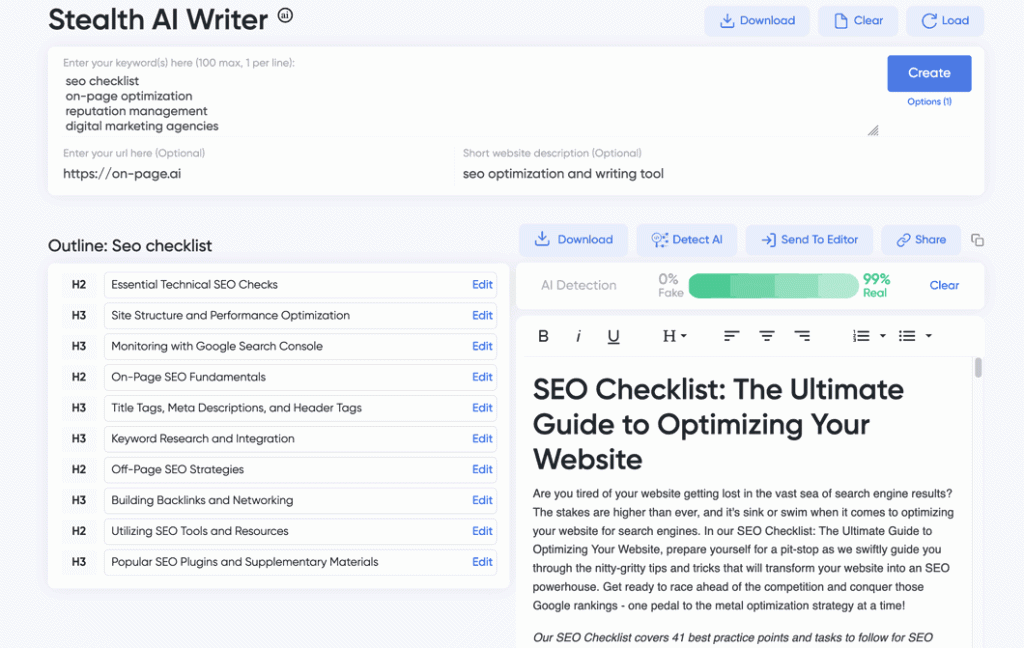
It’s vital to note that not all AI-generated content is equal. The quality of AI-generated content depends heavily on how well the algorithms are trained and how much input data they have access to. Data volume and quality play a crucial role in developing reliable natural language processing algorithms.
However, when comparing human-written and AI-generated content quality can vary depending on what is expected out of the output. Machines excel at generating large amounts of standardized text while humans focus on providing more creative outputs requiring extensive resourceful thinking skills.
Therefore, now that we understand how artificial intelligence generates content let’s discuss in detail how this content affects SEO rankings.
- A 2021 survey by MarketMuse found that 75% of marketers using AI-generated content reported improvements in their content quality and productivity.
- In a poll conducted by Content Marketing Institute, only 5% of marketers were using AI for content creation, while the majority (78%) still relied on human-created content, suggesting a slower adoption rate but with increasing interest.
- According to a Gartner report, by 2025, 70% of all generated marketing content will be created with the help of AI technologies, implying that SEO-friendly AI-generated content will likely play a significant role in the future of digital marketing.
AI Content Quality and Readability
AI-generated content has widely been viewed with skepticism in the past. The biggest issue that critics have with it is the quality and readability of the output. Despite technological advancement, there was a time when AI-generated content was full of grammatical errors, factual inaccuracies, and disjointed thoughts. However, recent advancements in natural language processing have made AI-generated content far more readable and high-quality.
Nowadays, creating flawless AI-generated content is possible, particularly with an advanced content optimization tool like On-Page.ai. This AI-powered SEO platform does all the heavy lifting for you to come up with search engine-friendly content that your target audience will find useful and enjoyable.
Also, companies like OpenAI use incredibly sophisticated algorithms to ensure that their content is top-notch. Their deep-learning models run millions of simulations to determine word choices, phrasing, and tone. When an AI model generates any text, it typically goes through several stages of refinement before producing a finalized version.
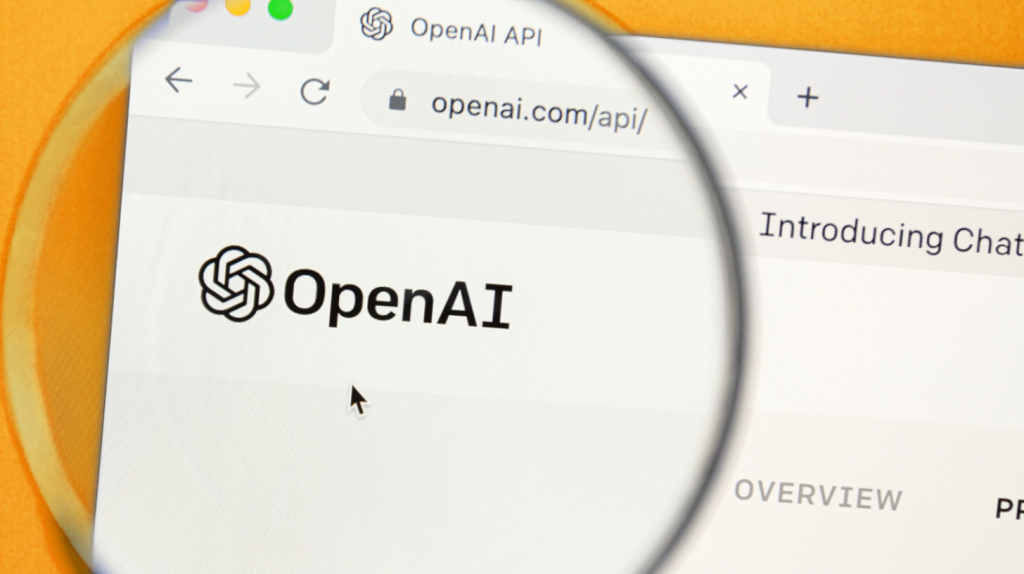
This approach can guarantee high-quality content that readers will appreciate. Another factor that determines content quality is the accuracy and relevancy of the information contained within. Machine Learning algorithms enable AI-powered writing tools to analyze user intent accurately and provide relevant data-driven recommendations for topic selection.
That being said, while AI may generate good quality content, it might still be less impactful compared to human-generated content. While machines are capable of understanding language rules and following them correctly, they do not possess the creativity and emotional intelligence humans possess when crafting written work.
Writing is an art form and we’ve always admired those who excel at it. It takes passion, creativity and real human insight to produce engaging written pieces. While machines have come a long way in generating fairly decent prose, true quality lies in storytelling – something that humans are naturally gifted at.
The ability for AIs like OpenAI to write high-quality content continues to improve steadily every day as machine learning algorithms become more advanced.
- AI-generated content has come a long way in terms of quality, readability, and accuracy. With recent advancements in natural language processing combined with sophisticated algorithms, machines are now capable of producing top-notch content that can be appreciated by readers. However, while machines may produce good quality content, they lack the creativity and emotional intelligence that humans possess when it comes to crafting written work. Thus, while AI-generated content is improving at a steady pace every day, true quality storytelling still lies in the hands of the human touch.
Search Engines’ Evaluation of AI-Generated Output
Search engines have long been tuned to evaluate content quality and relevance. In the past, machine-generated text was often riddled with spelling mistakes, factual inaccuracies and lacked cohesiveness. Poor-quality content hinders users’ experience, negatively affecting SEO efforts.
While Google‘s earlier stance on AI-generated content creation was negative, it has since revised its judgment by recognizing well-produced computer-generated writing as relevant, useful content that ought to be ranked and indexed in search results. Thanks to modern-day AI language models like GPT-3, content created by machines has become comparable to human-written material.
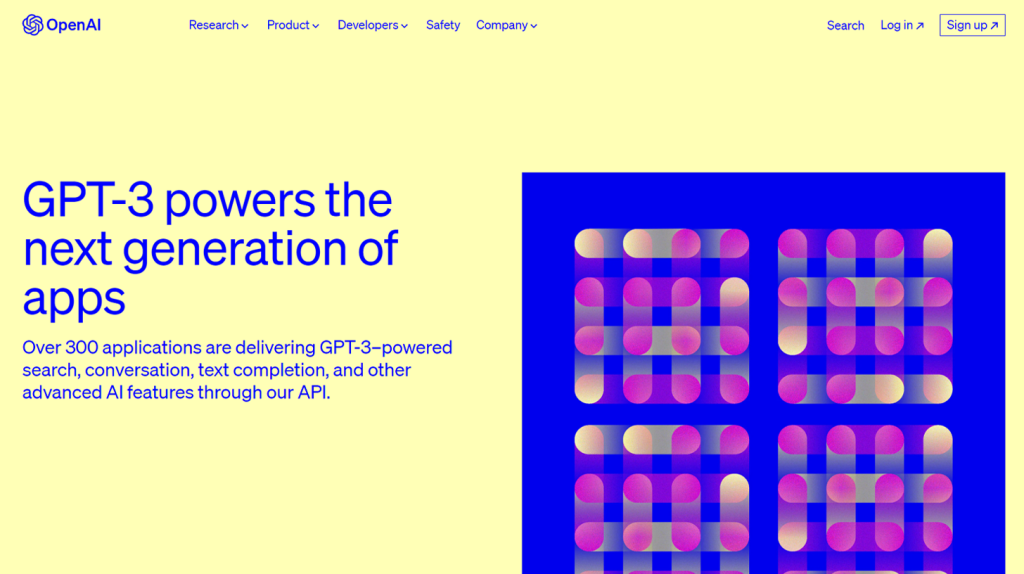
Indeed, differentiating between human-written work and artificially produced material is becoming increasingly difficult for people and systems alike.
However, a primary issue with automatically generated content is that it may lack personality and voice – two of the most essential elements that make content stand out. Human-written copies can project emotions and speak directly to readers, eliciting varied responses from them.
For example, Imagine if a robot attempted to write a love letter in place of your partner’s words – the message would likely be technically correct but would lack the emotional warmth that makes such messages impactful. The same applies to writing where user intent is focused on establishing some form of connection with their audience.
Despite this shortfall compared to human-created material, the quality of AI-generated writing will continually improve through innovation and incorporation of newer algorithms geared towards advanced machine learning techniques.
Optimizing AI-Generated Content for SEO
AI-generated content can be a handy tool when it comes to creating bulk content in less time. However, just creating a piece of content that is fast and cheap may not necessarily guarantee views and visits. To ensure maximum visibility on search engines, it’s essential to optimize the AI-generated content for SEO. The following are some tips for optimizing the content generated by an AI tool:
One important thing while generating an article using an AI writer is to provide the right keyword. Using Stealth Writer, you can simply input some of your target keywords and phrases which will help it generate relevant articles and posts.
Identify and Apply Targeted Keywords
Like human-authored content, even AI-generated content should have targeted keywords that are optimized for SEO. Use relevant long-tail and short-tail keywords in strategic locations such as titles, headers, body text, and meta descriptions. Also, ensure that the keywords used are not stuffed.
Maintain Readability
While heading towards optimizing the content with relevant target keywords, one shouldn’t ignore readability. Make sure that the textual part of the content generated by the AI is readable enough for users across different devices. Check that your content is free from any grammar or spelling errors. Luckily, Stealth AI Writer is integrated with a grammar and spelling checker so you don’t have to worry about typos and grammar mistakes.
Analyze Competing Pages
Dive into competing pages ranked on the first page of SERPs using popular SEO tools like On-Page.ai to understand their on-page performance better. This will give you a solid idea of what it takes to rank on those pages. Use this analysis as a standard and focus on building superior-quality content than your competitors.
Add Internal Links
Add internal links between related blog posts or articles to boost website engagement and lower bounce rates. Fret not because On-Page SEO tool makes this daunting task such a breeze. All thanks to its internal linking recommendations feature that allows you to link relevant content automatically.
Include Alt Texts
Adding alternative text descriptions (alt texts) to images helps visually-impaired viewers consume your content easily while ensuring better optimization for search engines.
Studies show that optimizing your AI-generated content for SEO can have a considerable impact on your website’s visibility in the search results. Optimizing the content improves its relevance, making it more likely to be indexed and found as a search result. That being said, algorithms keep getting updated, so tweaking and updating your optimized content periodically is also essential.
Some digital marketers argue that relying too heavily on AI-generated content can hamper the uniqueness of their websites and harm their brand image. It’s true that not all AI tools produce completely unique articles, which can impact rankings negatively since Google doesn’t appreciate duplicate or unoriginal content.
However, this can be remedied by reviewing the AI-generated article thoroughly before publishing it and trusting only reliable AI writing tools like the Stealth Writer. Overall, AI cannot replace human creativity completely yet and still requires a certain level of human input for generating unique content.
Keywords and Meta Tags
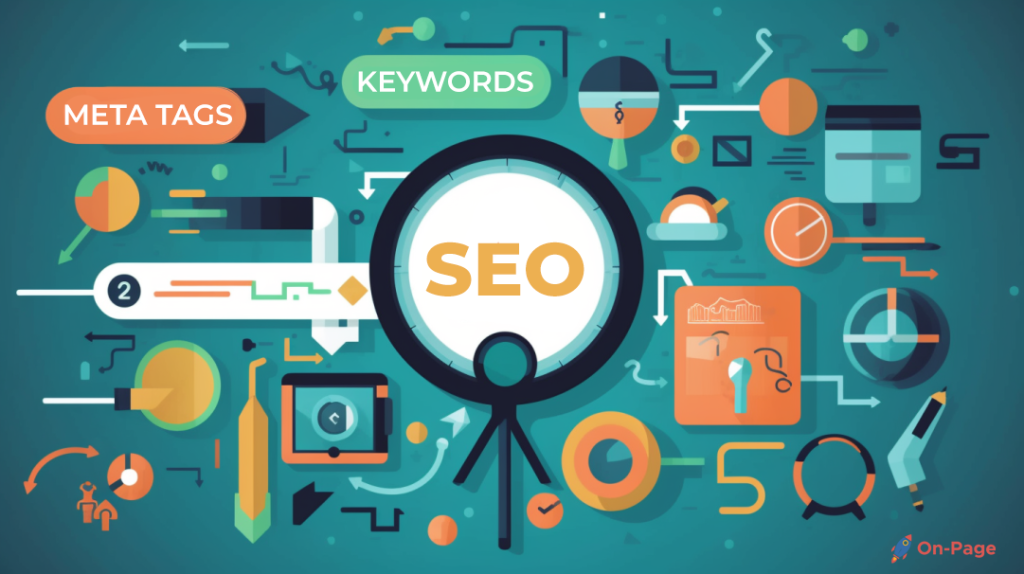
In SEO perspective, keyword research and keyword implementation into your page content are significant determinants of your site’s rank in search engine results pages (SERPs). Not only do you come across as more reliable to your readers when you rank higher on Google for relevant keywords, but you also generate more organic traffic to your website. Here is how you can optimize AI-generated content using targeted keywords and meta tags:
Target Long-Tail Keywords
Using long-tail keywords targeted at specific niches allows you to fine-tune your audience segmentation and improve relevancy. Make sure to take advantage of On-Page.ai‘s ability to discover long-tail keywords that you need on your site to rank well on SERPs.
Organize Content with Headers
Use H1 headings for titles and target long-tail keywords within them; use H2s for subheadings throughout body text to break down topics optimally.
Optimize Meta Descriptions
The short description found below title tags in SERPs should ideally contain focus keywords. A well-written meta description can help improve click-through rates (CTR) to your site from search results.
Avoid Keyword Stuffing
Oversaturating with keywords won’t make your content any more enticing to readers or search engines. In fact, the opposite could be true, and your pages could be flagged as ‘spammy’ by search engines. Instead, naturally work keywords into your content where they fit strategically.
Keywords are like signposts on a highway that direct visitors towards their destination smoothly. If you were trying to go to a specific place and there’s no sign indicating where exactly you are going — it would make the journey more ambiguous., Likewise for websites, without relevant keyword usage within website content and meta tag descriptions, bots may not read your pages’ intent correctly.
Optimizing AI-generated content primarily involves identifying target keywords relevant to your business or industry and using them throughout the generated text in strategic locations like titles, headers, body text, and meta descriptions. Doing this with AI-generated content shouldn’t deviate much from optimizing human-authored articles, barring certain minor points of differentiation.
Over time, optimized AI-generated content can prove to have significant benefits when it comes to generating qualified traffic. Plus, having On-Page SEO tool at your disposal will certainly make content creation easy and effective.
Comparing Human-Authored and AI-Generated Content
When it comes to content creation, businesses have the option of using either human-authored or AI-generated content. Both approaches have their pros and cons, and it’s up to businesses to weigh them carefully before choosing one option over the other.
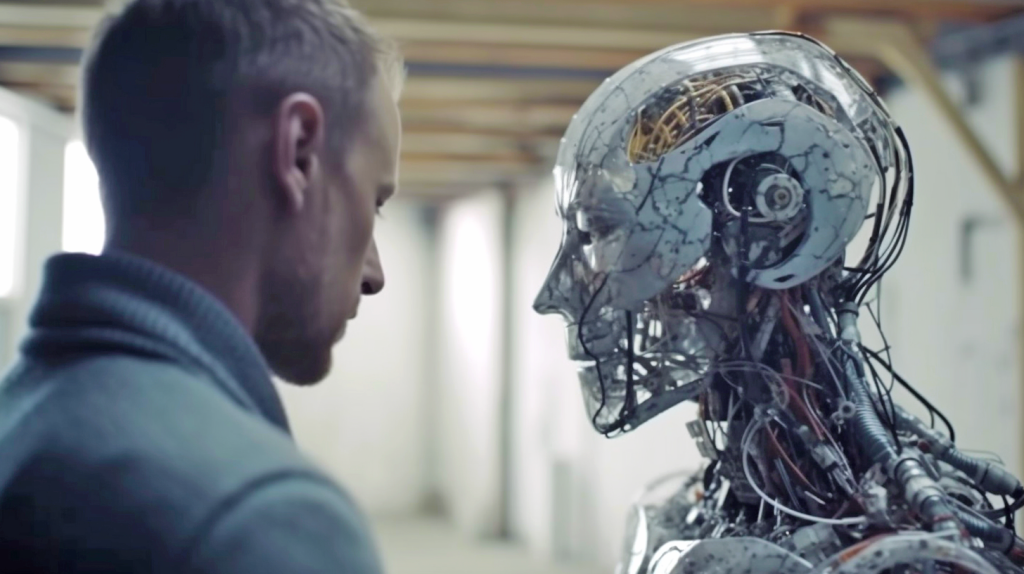
Human-authored content is created by actual writers who use their knowledge, expertise, and creativity to produce high-quality, engaging content that resonates with readers. This type of content can be highly personalized, incorporating the writer’s unique perspective, tone, and voice. Additionally, human-authored content has an inherent level of emotional intelligence that machines don’t possess. Therefore, it can make readers feel more connected to the brand and earn more trust.
For instance, a company may hire a professional copywriter or a freelance writer to create blog posts or social media content that highlights the brand’s unique selling proposition (USP) in an engaging way. The resulting output could easily connect on an emotional level with the target audience and encourage them to share or comment on the post.
On the other hand, AI-generated content is produced by computer algorithms that analyze existing content on a given topic and then generate new content based on that analysis. AI-generated content has several advantages over human-authored content; It can be produced quickly and at scale while keeping errors at bay.
Still, machine-written text has limitations compared to humans since machines lack nuanced understanding of emotions and cultural factors, which limits their ability to incorporate creativity in their writing.
One aspect where AI-generated content lags behind and poses ethical concerns is its originality. AI algorithms tend to emulate existing content, which leads to duplication and plagiarism. But this is where Stealth Writer and Stealth ReWriter shine the most–they can generate and or rewrite 100% unique articles. They also sound non-robotic and undetectable by other AI tools!
Furthermore, it’s impossible for a machine-written piece of content to offer the unique voice or personality that human writers can bring. For example, Forbes magazine has begun to provide taglines like “authored by AI” which undermines the authenticity of their content.
In conclusion, while AI-generated content provides some advantages over human-authored output like speed at scale and cost efficiency, it’s notable that they lack emotional appeal and creativity.
But remember On-Page.ai offers the perfect harmony of efficiency meets creativity. It’s a great content editor that guides you on which keywords to use to boost your traffic and page rank. It can also auto-optimize content if you wish to go that route. These are just some of the many handy SEO features of On-Page.ai that you don’t want to miss.
Check out On-Page.ai today and let’s take your SEO content creation game to the next level!

